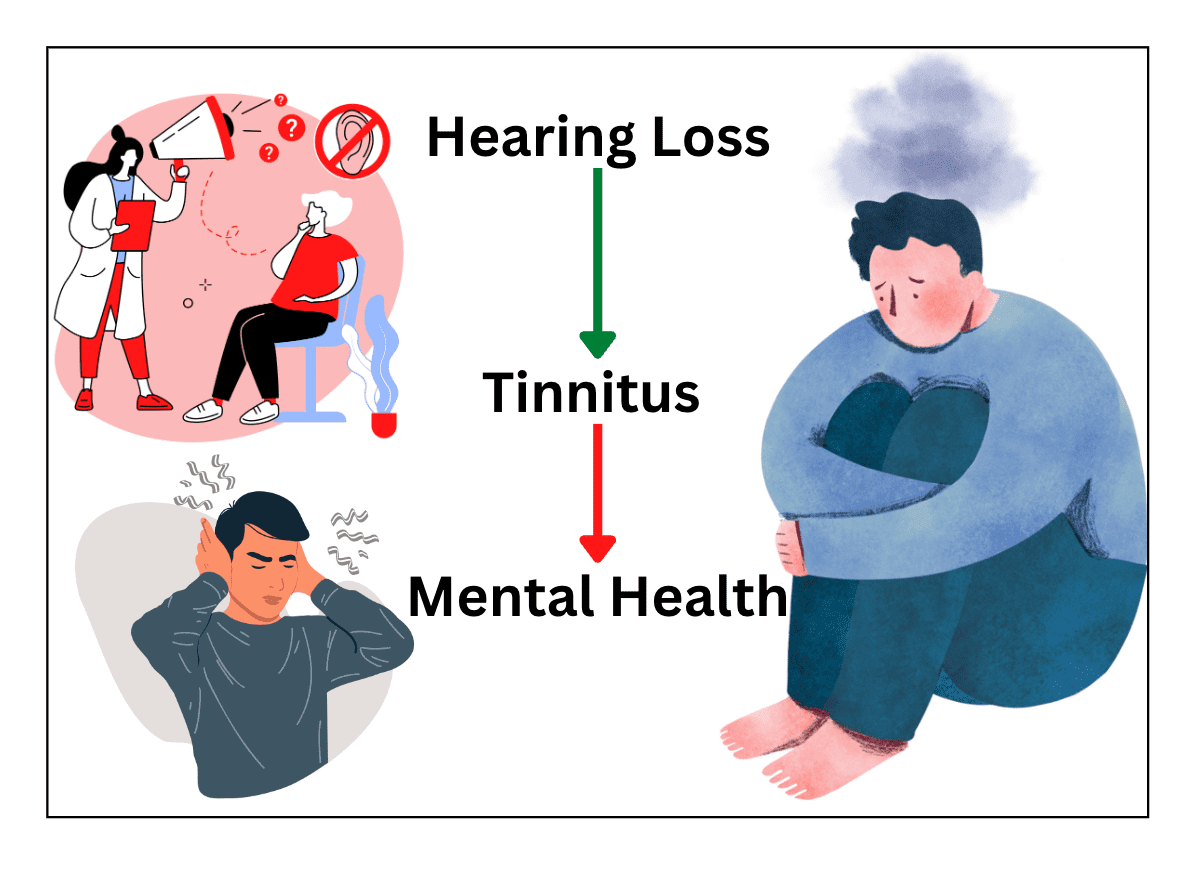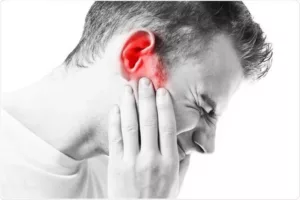
There is evidence to suggest that tinnitus and hearing loss can lead to anxiety and depression in some individuals. Tinnitus is the perception of sound when there is no external source of the sound, and it is often described as a ringing, buzzing, or whistling in the ears. Hearing loss is the partial or complete loss of the ability to hear sounds. Both tinnitus and hearing loss can be distressing and disruptive conditions that can have a negative impact on a person’s quality of life.
Tinnitus and hearing loss can cause feelings of anxiety and stress, as well as interfere with sleep, concentration, and communication. In some cases, tinnitus and hearing loss can lead to social isolation, as the constant noise in the ears or difficulty hearing can make it difficult for a person to participate in activities with others.
Several studies have found that tinnitus and hearing loss are associated with an increased risk of anxiety and depression. For example, a study published in the Journal of Affective Disorders found that individuals with tinnitus had a significantly higher risk of anxiety and depression compared to those without tinnitus (Khalfa et al., 2002). Another study published in the journal Sleep Medicine found that tinnitus was associated with an increased risk of depression and anxiety, as well as reduced quality of life (McCarthy et al., 2014). Similarly, research has shown that hearing loss is associated with an increased risk of depression and anxiety (Gopinath et al., 2014; Lang et al., 2015).
It is important to note that the relationship between tinnitus, hearing loss, and mental health is complex and can vary greatly from person to person. Tinnitus and hearing loss are subjective experiences, and how a person reacts to and copes with these conditions can play a significant role in their mental health. Some people with tinnitus or hearing loss may be able to manage their condition with little impact on their mental health, while others may experience significant distress.
In summary, there is evidence to suggest that tinnitus and hearing loss can lead to anxiety and depression in some individuals. It is important for individuals with tinnitus or hearing loss to seek support and treatment if they are struggling with their mental health as a result of these conditions.
References:
-
Gopinath, B., Baur, L. A., Flood, V. M., & Mitchell, P. (2014). The burden of hearing loss and the impact of hearing aids on quality of life. Maturitas, 79(1), 39-44.
-
Khalfa, S., Dubal, S., Veuillet, E., Looi, C., & Collet, L. (2002). Tinnitus, anxiety and depression. Journal of Affective Disorders, 72(1), 45-52.
-
Lang, H., Püschel, K., & Hillecke, T. K. (2015). The impact of hearing loss on quality of life: A systematic review. BMC Ear, Nose, and Throat Disorders, 15, 14.
-
McCarthy, J. P., Golding, J. F., & Kline, L. E. (2014). Tinnitus severity and distress: The role of comorbid insomnia, anxiety, and depression. Sleep Medicine, 15(9), 1046-1052.






